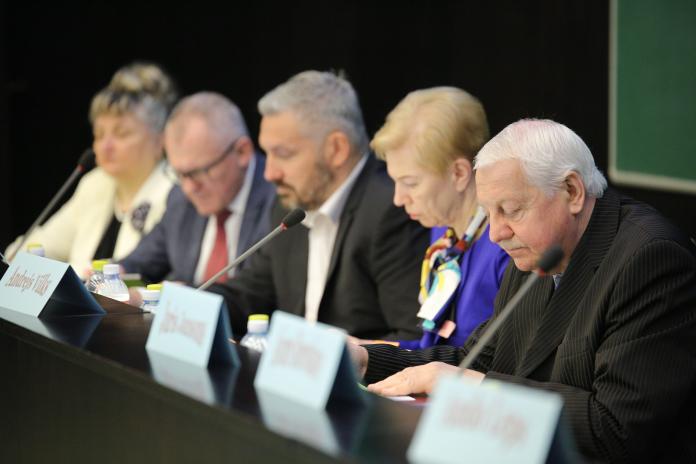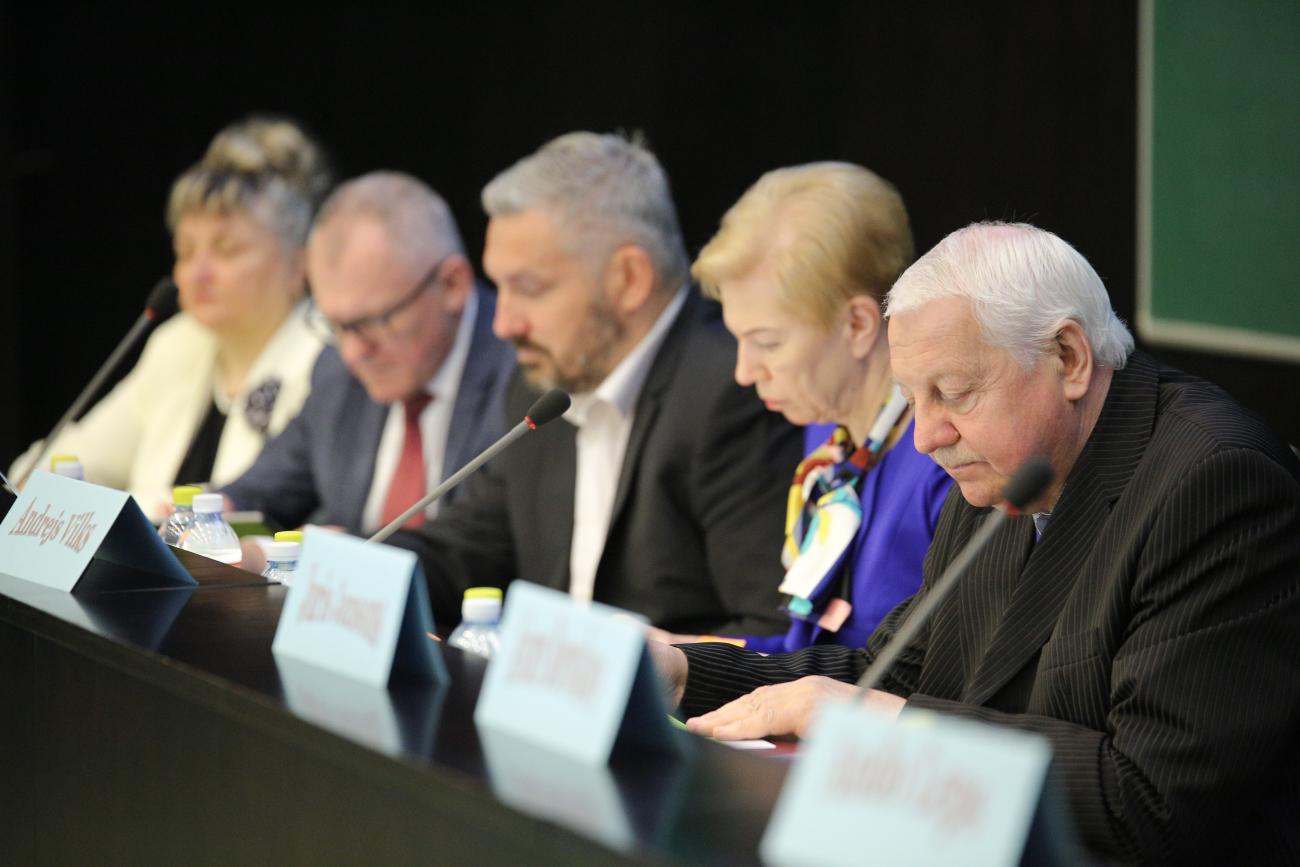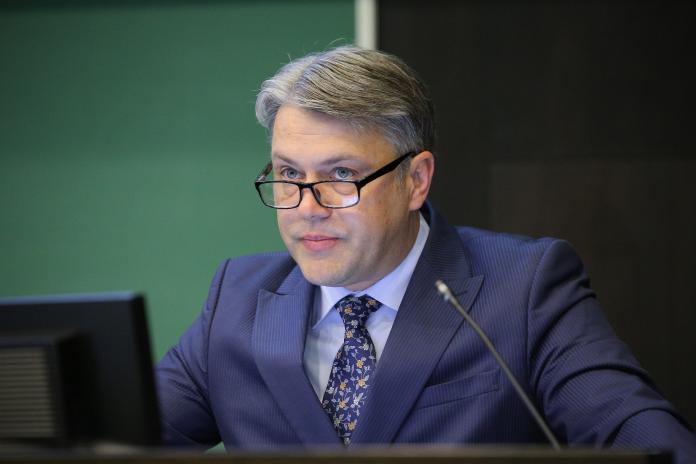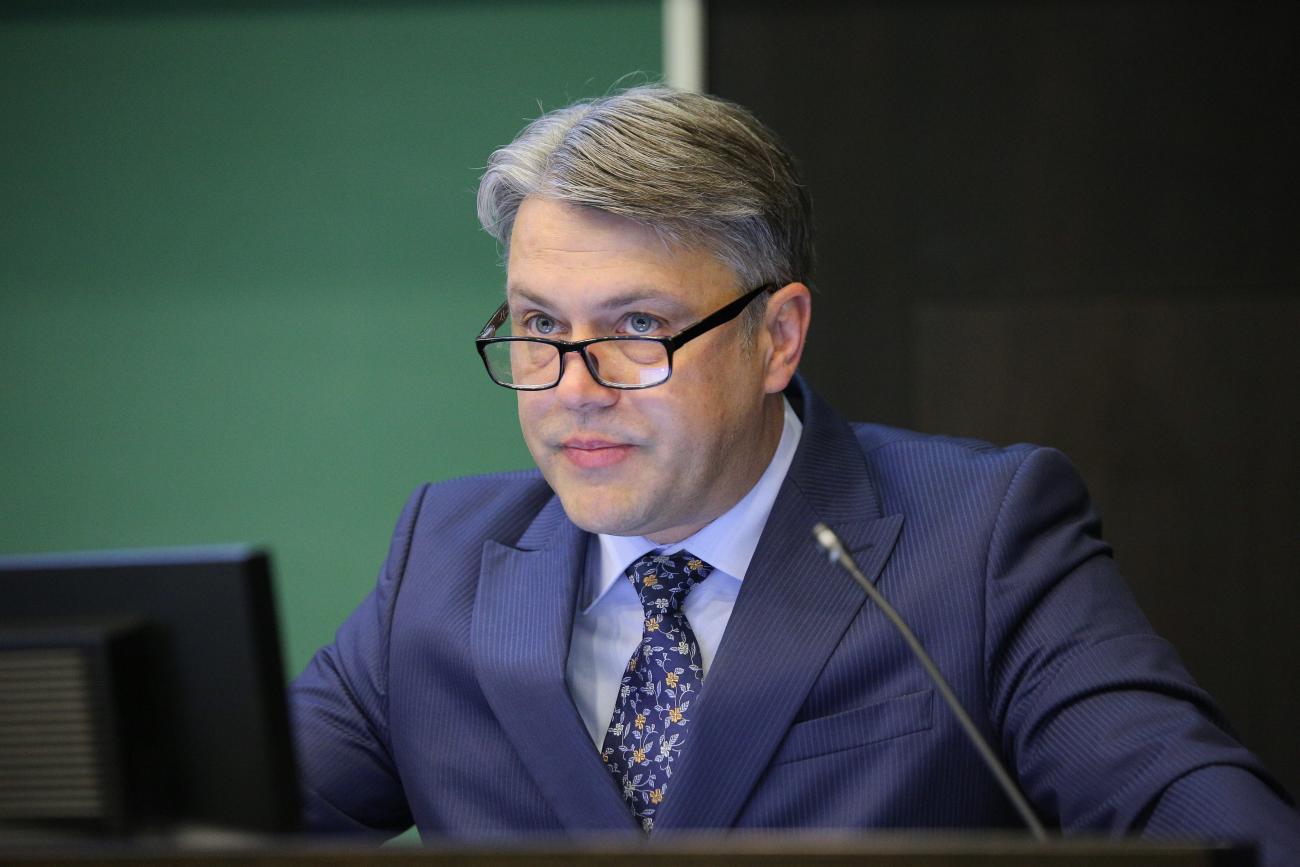Conference evaluates challenges of the legal system
On 25 April Rīga Stradiņš University (RSU) hosted the international conference Topical Issues of the Legal System which was organised by RSU, the Latvian Association of Lawyers, the Baltic Centre for Strategic Research and other partners. During the opening of the conference Professor Andrejs Vilks, the Dean of the RSU Faculty of Law, stressed that the title of the conference covers a wide range of topics and allows for assessing the most significant challenges of the modern legal system. The conference showed that RSU is a powerful platform for dealing with legal issues.
Education as a guide for change
Addressing conference participants Vice-Rector of Education Professor Tatjana Koķe emphasised the dynamics of the field of law. Professionals in this field experience constant changes to their functions, tasks, and competence requirements. One of the most efficient means for introducing changes in a competent manner is education. RSU can be proud of offering an education which strikes a good balance between the academic and professional sides of the field, as well as continuing education and supporting lifelong learning. Professor Tatjana Koķe added that high-level education and research are unimaginable without close cooperation with employers who can spot the necessary changes in the field and market requirements.
Latvia’s crime rate is average in the EU
Deputy Chief of the State Police Artis Velšs, who is also a doctoral student at RSU, presented current Latvian crime statistics. The total number of criminal offences is decreasing in Latvia: in 2018 there were 225.3 crimes per 10 000 people which is a number about two percent lower than in 2017. Numbers have been gradually decreasing since 2014. Latvia slightly falls behind Estonia, and is on a similar level as Lithuania. The number of particularly serious crimes has increased by 21 crimes – this is mainly related to the circulation of counterfeit money and money laundering. The number of crimes committed by criminal groups has also increased. The most common offences of such groups is the illicit movement of drugs and excise goods, as well as fraud and theft.
Over 234 000 administrative cases were filed in Latvia last year, 80% of which were related to road traffic. As Artis Velšs put it, this shows that road safety and the public’s attitude towards it is debatable. Last year the number of road accident victims increased: 4 785 people were injured and 148 people died, which is 12 more than a year ago. Artis Velšs emphasised this year’s challenges and priorities of the State Police: fighting financial crimes (MONEYVAL report), improving the quality of investigations, strengthening traffic safety, structural reforms, and police visibility. Surveys show that citizens would like police officers to be more visible in their daily work as this would create an atmosphere of safety and reliability.
Social networks will not assist terrorists
According to Assistant Professor Valdis Voins, Head of the study direction Internal Security and Civil Defence at RSU, terrorism is now increasingly connected with modern technologies and social networks in particular. Terrorists try to persuade and convince potential recruits who share their views to promote their harmful ideas or to engage in criminal activities. For social networks not to become channels for promoting terrorist intentions and crimes the EU is adopting a regulation requiring the prevention of the possible use of social networks for these purposes and to delete such content. At the same time regulations must not restrict the right of people to freely receive and distribute information. In the recent terrorist attack in New Zealand the offender broadcast his crimes live via social media. Given the speed with which this kind of material can be shared, the speed with which it needs to be able to be deleted is crucial.
Cyber-attacks could endanger patients' lives
The conference started with a plenary session and continued with work in several sections. One of the sections, chaired by the Head of the Law study programme, Juris Zīvarts, was dedicated to cybersecurity in the healthcare system. Medical institutions have access to a vast database of patients, as well as other confidential information, making it vulnerable to theft and illegal distribution which can harm the public. In addition patients are nowadays treated by various medical devices operated by computer software meaning that a cybercriminal could try to influence the operation of the treatment equipment. As Juris Matisāns, a personal data protection specialist, emphasised during the discussion a criminal could even try to kill someone by making changes to the medical equipment software or by changing the dosage of digitally prescribed medicine. Modern treatment possibilities and manipulations by computer-controlled robots are becoming more common. Recently an experimental operation was carried out in the US by a computer-controlled robot, while the medical specialist working on the computer was hundreds of kilometres away. Such communication through the Internet enables excellent medical professionals to help patients around the world without needing to travel. This future could be threatened by cybercriminals and therefore all necessary safety measures should be identified. Other sections of the conference covered the publication of the KGB files, the role of trade unions, and punishment in the 21st century.
During the plenary session of the conference Ombudsman Juris Jansons compared lawyers to doctors in that it can never be too early to get advice from a doctor or a lawyer – it can only be too late. Aivars Borovkovs, President of the Association of Lawyers, on the other hand, highlighted several possible rights infringements – the disclosure of tapped telephone conversations, the impact of politics on legal decision-making or insufficiently balanced data protection. Guests from Bulgaria and Estonia also shared their experiences. The conference was only one of the annual Lawyers Days events.
Related news
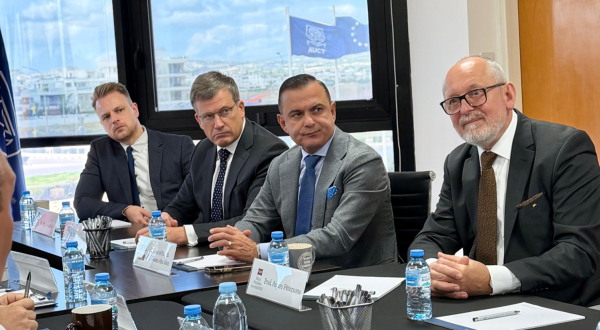 RSU management discusses development of medical education cooperation at high-level meetings in Cyprus International Cooperation
RSU management discusses development of medical education cooperation at high-level meetings in Cyprus International Cooperation